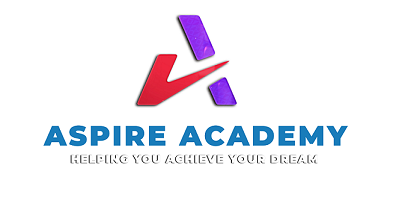Should integrating AI into school curriculum be the right thing? A few years ago, Artificial Intelligence (AI) felt like science fiction — something distant and abstract. Today, it’s part of our everyday lives. Whether it’s Google predicting your search, Netflix recommending your next series, or a chatbot helping with your homework, AI is everywhere. So, the big question facing educators, parents, and students alike is:
And if so, is it a blessing or a burden?
At Aspire Academy Coaching, we work closely with young minds every day. We see how fast the world is changing — and how the education system often struggles to keep up. So let’s unpack this big question — not just from a technical standpoint, but a human one.
The AI Wave Is Already Here
We’re no longer preparing students for the future of AI — we’re preparing them for the present. AI is already disrupting industries, changing how we learn, work, and even think.
But schools? Most are still stuck in a model built for the industrial era — rote memorisation, standardised tests, and rigid subjects. There’s a growing gap between what students are being taught and what the real world demands.
Integrating AI education is not optional. It’s essential.
But how we do it makes all the difference.
Why AI Deserves a Place in the Curriculum
1. Preparing for Future Careers
By 2030, a massive percentage of jobs will require AI literacy — whether directly (data science, robotics, automation) or indirectly (marketing, healthcare, finance). Teaching students how AI works isn’t just about coding. It’s about:
-
Understanding automation and algorithms
-
Thinking critically about data
-
Building ethical awareness around technology
If we don’t prepare students for this now, we’re setting them up to be left behind.
2. Encouraging Critical Thinking
One of the most empowering aspects of AI education is that it naturally encourages students to ask deeper questions:
-
How does this technology make decisions?
-
What data is it using?
-
Who is responsible if it makes a mistake?
This builds critical thinking — a skill far more valuable than memorising facts.
3. Levelling the Playing Field
AI tools can personalise learning. Students who struggle with traditional teaching methods can benefit from adaptive platforms that adjust to their pace. Language tools, speech-to-text, and AI tutors — these innovations help students learn better, regardless of their background or learning challenges.
But Here’s the Other Side: The Burdens
1. Not Every School is Ready
AI may be the future, but many schools are still battling with basic tech infrastructure. Without proper funding, training, and resources, rolling out AI in classrooms risks creating a bigger divide, where privileged students benefit and others fall further behind.
2. Teachers Need Support Too
Teachers are the heart of any education system. But they’re already overwhelmed — lesson plans, admin work, classroom behaviour, and now… AI?
Integrating AI shouldn’t mean replacing teachers or burdening them with yet another tool to manage. It should empower them. That requires thoughtful training, open dialogue, and a human-first approach.
3. Ethical Concerns Are Real
When we hand over more control to AI, we open the door to important ethical issues:
-
Are students’ data being protected?
-
Are we encouraging dependence on machines?
-
Will creative thinking be lost to automation?
We can’t ignore these questions. If AI is to be a boon, not a burden, ethics must be part of the lesson plan, not an afterthought.
The Human Element Cannot Be Replaced
AI can do a lot of things. It can grade papers, personalise lessons and even simulate conversations. But here’s what it can’t do:
-
Sense the anxiety in a student’s eyes
-
Encourage a child who’s having a rough day
-
Adapt emotionally in a real-time moment of crisis
That’s where teachers, mentors, and humans remain irreplaceable.
The purpose of integrating AI into education is not to strip away human connection — it’s to enhance it. It’s to free up time from repetitive tasks so that educators can focus more on what truly matters: guiding, inspiring, and shaping lives.
So, Boon or Burden?
It depends on how we approach it.
If we rush into it without thought, without resources, and without ethics, AI becomes a burden. A flashy distraction from the real needs of education.
But if we approach it with care, combining innovation with empathy, and technology with purpose, then AI can be one of the greatest tools of our time.
How Aspire Academy Coaching Is Preparing Students
At Aspire Academy, we don’t believe in preparing students just for exams — we prepare them for life. That’s why we’re introducing workshops and modules that go beyond textbooks:
-
Intro to AI & Digital Awareness
-
Ethics in Technology
-
Creativity in the Age of Machines
-
Human Skills that AI Can’t Replace (like empathy, communication, leadership)
Our goal is to build future-ready minds — not just tech-savvy, but values-driven.
What Can Parents and Educators Do Right Now?
✅ Start the Conversation
Talk to your children or students about AI. Ask them what they know. What they use. What they fear. Make it normal to question and explore.
✅ Model Balanced Tech Use
Kids watch more than they listen. Show them that technology is a tool, not a replacement for thinking, feeling, or living.
✅ Advocate for Responsible Integration
Push for AI education in schools, but demand that it’s done right — with ethics, support, and inclusion at the centre.
In Closing
AI is here to stay. The question isn’t if it will shape education, but how.
Let’s make sure we’re not just feeding our children tools, but giving them the wisdom to use them well.
Let’s teach them not just how to build machines, but how to stay human.
To join our Academy, click www.aspireacademycoaching.com
Read More Blog:- Click here



